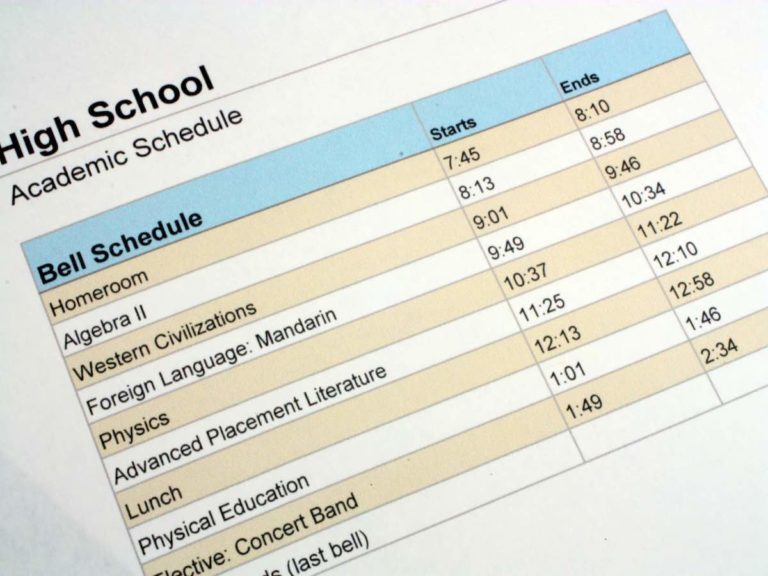Best Foreign Languages to Learn for the Future
Learning Italian, French, Spanish, Mandarin Chinese or Hindi not only allows you to communicate with a person who speaks a different language.
It also enables you to get to know a country’s history and culture as well as traditions.
Want a global career that allows you to travel or work outside the United States? While pursuing higher education, go for a major that enables you to study a foreign language.
In this post, I will guide you through 12 different languages that you can learn in college.

12 Languages of the Future to Learn Now
And now, we have come to the crux of this post, which is none other than the best languages to learn for the future.
See which of the following you find personally interesting or professionally motivating:

Mandarin
- Number of people speaking it: 1.1 billion
- Number of countries using it as an official language: 5
- Percentage of worldwide internet users using it: 19.4%
According to a report by Inc., which is an American business magazine, Mandarin is the number one language that CEOs must learn in order to get ahead.
So, in other words, you should consider mastering it if your goal is to become a successful global business person.
Mark Zuckerberg, the co-founder and CEO of Facebook, speaks Mandarin fluently.
Unfortunately, the general consensus is that Mandarin is the hardest language to learn despite the fact that it’s the most widely spoken native language on the face of the planet.

Spanish
- Number of people speaking it: 548.3 million
- Number of countries using it as an official language: 20
- Percentage of worldwide internet users using it: 7.9%
Some of the most important trading partners of the US are Spanish-speaking countries such as those in Latin America.
It goes without saying that learning Spanish can increase your job market value if you are planning on working for a multinational company.
Besides, the largest minorities in the US are Hispanics, most of whom speak Spanish.
If you are thinking about mastering Spanish in no time, you will be more than happy to learn that the language is considered one of the easiest for native English speakers to learn.

Hindi
- Number of people speaking it: 602.2 million
- Number of countries using it as an official language: 7
- Percentage of worldwide internet users using it: 0.1%
The official language of India is Hindi.
And if you are planning on one day becoming one of the more than 700,000 Americans living and working in India, it’s undeniably a good idea for you to gain proficiency in Hindi.
Learning Hindi can also prepare you for Urdu, which is the first language of almost 70 million people.
Here’s the deal with Hindi: while learning how to write it is easier than Mandarin, it can also be just as challenging for native English speakers to learn how to speak it mainly because of the enunciation of sounds and words.

Arabic
- Number of people speaking it: 274.0 million
- Number of countries using it as an official language: 25
- Percentage of worldwide internet users using it: 5.2%
Some Americans choose to reside in the Middle East because they make more money there, while others simply love living there.
If you wish to follow suit one day, now is the right time to learn Arabic — it is spoken in the majority of Middle Eastern countries.
Also, in the US, there are close to a million Arabic-speaking individuals.
Earlier, it was mentioned that Mandarin is the hardest language there is to learn.
Well, second in line is Arabic.
But fret not because it has only 28 letters.
On the other hand, Mandarin has thousands of them!

Portuguese
- Number of people speaking it: 257.7 million
- Number of countries using it as an official language: 9
- Percentage of worldwide internet users using it: 3.7%
Whether you already know a Romance language or you want to be able to speak one, Portuguese makes for a wonderful language for you to learn.
According to a CEOWORLD Magazine report, Brazil’s economy is the eleventh-largest in the world based on gross domestic product (GDP), and Portuguese is the official language of the said country.
Initially, it would seem like Portuguese is impossible to master because of how native speakers pronounce the words.
But once you learn the rules, gaining mastery of Portuguese should be easier.

Bengali
- Number of people speaking it: 272.7 million
- Number of countries using it as an official language: 2
- Percentage of worldwide internet users using it: 0.1%
Despite the fact that it is spoken by nearly 300 million people all over the planet, Bengali is not as studied by foreign language majors as other widely spoken languages.
It’s because of this why you can have a standout resume if you choose to gain competency in it and, after graduation, take a career path in multilingual industries.
Alas, it’s not that easy for native English speakers to learn Bengali.
That’s because the language’s alphabet, vocabulary and grammatical structures are quite different from English.
But with patience and determination, anything is possible.

Russian
- Number of people speaking it: 258.2 million
- Number of countries using it as an official language: 4
- Percentage of worldwide internet users using it: 2.5%
There are many different career opportunities available in Russia, which is the largest country on the planet, and expats are some of the best-paid professionals there.
Jobs come aplenty most especially in major cities such as Moscow and St. Petersburg. Needless to say, if you are thinking about working in Russia, learning Russian is a must.
Among all the various Indo-European languages, Russian is said to be one of the most difficult to learn.
One of the main reasons for such is that the Russian grammar rules are complex — there are lots of dos and don’ts.

Japanese
- Number of people speaking it: 125.4 million
- Number of countries using it as an official language: 1
- Percentage of worldwide internet users using it: 2.6%
We mentioned earlier that Brazil has the eleventh-largest economy in the world GDP-wise. The third-largest economy, meanwhile, is Japan, which is why it makes perfect sense to learn Japanese if your goal is to have a global career.
Engineering, banking, IT, translation and sales are some of the top jobs for Americans in Japan.
But according to the US Foreign Services Institute (FSI), which is the country’s primary training institution for employees of the US foreign affairs community, Japanese is the hardest language for native English speakers to learn.

French
- Number of people speaking it: 274.1 million
- Number of countries using it as an official language: 29
- Percentage of worldwide internet users using it: 3.3%
With so many different countries where French is considered the official language, chances are you can benefit from gaining mastery of French whether you are fond of traveling or eyeing an international career.
College students may consider minoring in French if they have interdisciplinary majors such as business administration and humanities.
Due to the fact that French is close to English, it’s considered one of the easiest foreign languages for native English speakers to learn.
But it is said that it can take up to 23 weeks of study to attain complete fluency in French.

German
- Number of people speaking it: 134.6 million
- Number of countries using it as an official language: 6
- Percentage of worldwide internet users using it: 2.0%
Within the European Union, the country with the biggest economy according to GDP is Germany.
There are also lots of German companies popular all over the planet, including Adidas, Allianz, Audi, BMW, Bosch, Deutsche Bank, Mercedes-Benz, Porsche, Siemens and Volkswagen.
That is why learning German can help boost your job marketability.
The rules of speaking German and English are pretty much the same, which isn’t surprising since they are from the same language family.
So, in other words, you might find it easy to gain mastery of German.

Italian
- Number of people speaking it: 67.9 million
- Number of countries using it as an official language: 4
- Percentage of worldwide internet users using it: 0.8%
There are many contributions Italy has to the world.
They range anywhere from art, architecture, literature, music, food, fashion to film.
Due to this, you might want to consider learning Italian, especially if your career goal is to penetrate one of those areas.
Besides, Italy is spoken in over 10 countries as the mother tongue by a part of the population.
One of the easiest foreign languages for native English speakers to learn is Italian.
It is even said that it would take you almost 50% fewer classroom hours to learn it than Russian, Mandarin or another difficult language.

Korean
- Number of people speaking it: 81.7 million
- Number of countries using it as an official language: 2
- Percentage of worldwide internet users using it: 0.6%
Various reasons exist why many people from all over the planet choose to move to South Korea.
Some of them include cheap basic amenities, low crime rates, affordable public health care, tight-knit expat communities and lots of career opportunities.
Definitely, learning Korean is a must if you wish to enjoy these perks.
When it comes to the difficulty level of learning Korean, opinions are divided. Some say that it’s really hard, while others say it’s simple if you will pay attention.
Perhaps it’s a subjective matter.
Best Languages to Learn in College
Undergraduate students who like to learn a new language may consider majoring in foreign language. Some of the most popularly offered languages at most colleges and universities with a foreign language major are Arabic, French, Italian, Japanese, Mandarin, Portuguese, Russian and Spanish.
Besides foreign language, you can also choose an entirely different discipline related to the major, depending on factors such as your personal and professional preferences and requirements.
Here are some other majors to consider if you love learning a new language:
Applied linguistics
Simply put, applied linguistics majors investigate how language can help understand all kinds of real-world problems in areas such as education, psychology, sociology and other closely related fields.
After graduation, some applied linguistics majors work as translators and/or interpreters, while others have careers as educators.
International studies
Considering majoring in international studies is a great idea if it’s not just getting to know how to use another language that you love but also traveling and exposing yourself to different cultures.
Needless to say, it’s also the ideal major for you if you are eyeing the global job market — you dream of taking an international career path.
Language studies
This major is interdisciplinary. That’s because it will not only prepare you to be competent in a foreign language but also provide you with an in-depth understanding of the language’s structure and use.
Most language studies majors end up working as translators and/or interpreters, who make a median salary of $49,110 per year, according to the U.S. Bureau of Labor Statistics.
Linguistics
If your goal is to gain mastery of another language and study it in a scientific manner, too, then you might want to consider adding linguistics to your list of potential college majors.
The linguistics major is all about figuring out the acquisition of a language as well as its structure and the changes it goes through.
Linguistic anthropology
Planning on learning about a dead language?
Majoring in linguistic anthropology may be the right step for you to take in college. As a linguistic anthropology major, you will gain a better understanding of the influence of language on culture to help shape it.
Most bachelor’s in linguistic anthropology holders pursue a master’s for more career opportunities.
Gaining Mastery of a New Language

In many instances, it’s not enough for a student to major in a foreign language with a concentration in the preferred language for the acquisition of mastery in it.
Using the new language in all sorts of real-life situations and environments until such time that it feels like a second skin is highly recommended, too.
Attaining fluency in a language, including especially one for the future, fortunately, can be achieved in various ways. As a matter of fact, some of them are free of charge.
Here are some nifty ways on how to master a language while or after majoring in it:
Enroll in a diverse college
Nothing can make you master a second language faster and more effectively than learning it while using it to communicate with classmates who actually use it as their native tongue.
Some of the most ethnically diverse colleges and universities in the country are (in the following order):
- University of Hawaii – Hilo
- Andrews University
- University of Nevada – Las Vegas
- Rutgers University – Newark
- Stanford University
- University of San Francisco
- University of Hawaii – Manoa
- Georgia State University
- Johns Hopkins University
- Massachusetts Institute of Technology
- Texas Woman’s University
- University of California – Los Angeles
- University of Houston
- University of Texas at Arlington
Watch a foreign movie
Thanks to today’s many different streaming services online, there is no need for you to wait for an international film festival to be held just to be able to watch movies in a language you wish to learn.
All you have to do is log on to the web and select a movie you would like to enjoy as well as use as a learning tool.
Depending on your foreign language proficiency level, you can watch it with the subtitles on or off.
One of the nicest things about this approach to learning a different language is that you can polish your language skills while also learning about the culture of individuals who speak it.
Listen to the radio
Besides foreign movies, you may also stream online radio stations in order to gain mastery of a foreign language in no time.
It’s completely up to you whether you will listen to music or broadcast programs in a language of your preference. Since there are no subtitles to count on, sharpen your ears and get your notepad and foreign dictionary ready!
It’s also a wonderful idea to listen to podcasts of people who use the language you wish to be an expert at as their native tongue so that you may also be able to acquire the right structures and accents.
Make friends with foreigners
Earlier we mentioned that attending a diverse college can help you sharpen your foreign language-speaking skills.
No matter if you are on a college break or you have already earned your foreign language degree, you may also consider accessing web pages or installing apps on your smartphone that make it possible for you to talk with individuals from different countries on the planet.
Just a quick tip: when using this method, consider looking for foreigners who are trying to learn how to speak English so that you can enjoy being a learner and a teacher at the same time.
Pack your bags and fly
Last but not least, you can travel and head to the country where the language you wish to learn is the national or official language. Nothing can make you learn to use it better than surrounding yourself with people who speak it!
But it’s a good idea for you to have a certain level of proficiency in the language before you go.
Or you may also simply enroll in a foreign language degree program or something related to it that includes flying to a different country in the curriculum.
Linguistics and linguistic anthropology majors, in numerous instances, require undergraduate students to spend some time outside the country.
Disclaimer: The views and opinions expressed in this article are those of the authors and do not necessarily represent those of the College Reality Check.





